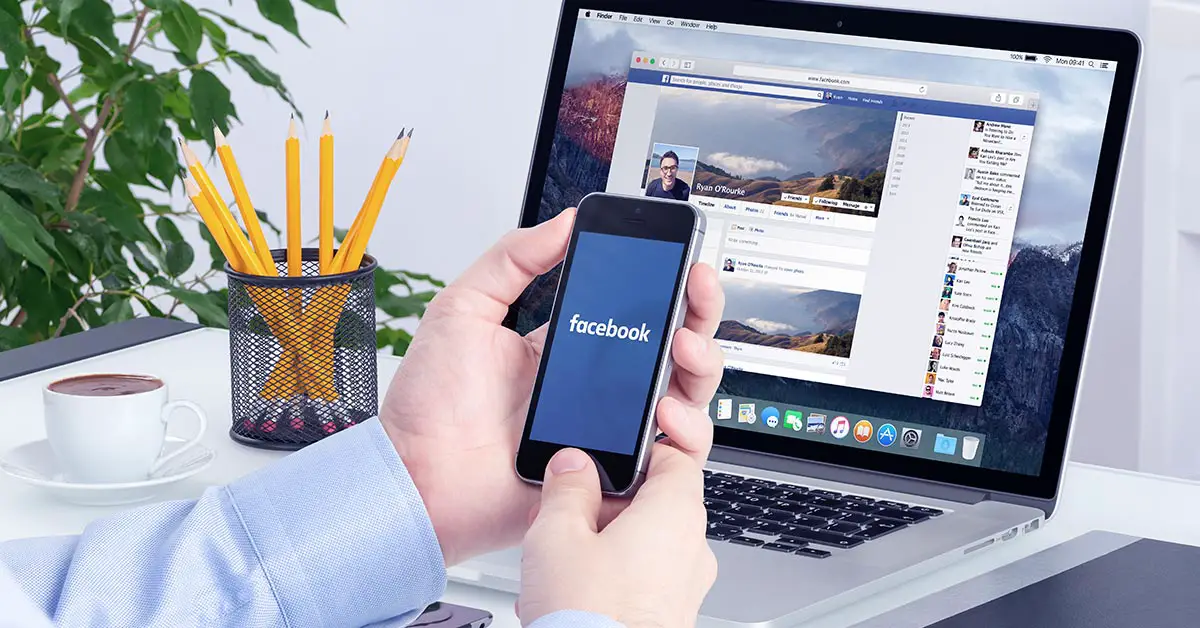By now, it’s no secret that Facebook has its issues. It collects the private data of its users and tracks their location from their phones. They monetize this data for advertisers, and this data has been leaked in the past, causing one of the many, many controversies Facebook faced. As Jake Moore, cybersecurity specialist at ESET says, “Facebook offers many reasons to use its platform offering huge amounts of information on whatever you are into. However, this now comes with a large price tag—that cost is your privacy.” No wonder people have decided to delete their Facebook accounts — or threaten to.
Although the site and app don’t do much to protect your privacy, there are some things that individual users could do to protect themselves.
10 Things You Should Delete From Facebook
Your Address and Locations
Most people know not to share their home addresses online. However, “checking in” and geotagging photos could give away your address without you realizing it. If all of your geotags, even the made-up ones, point to the same location, someone could figure out where you live. Also, be aware that other people could give away your address on their geotagged photos.
Photos of Children
First off, if they’re not your children, always ask for permission before you post. Even then, be careful of what photos you choose. You don’t really know who’s looking at these photos; therefore, avoid any nude shots. Also, avoid saying which school they go to or if they are old enough to be home alone. Someone nefarious could be paying attention to such details. And avoid any kind of embarrassing or private matter that they would not want to be public as adults. The internet is forever so let the kids grow up to make their own online legacy of their own choosing.
Vacation Details and Social Plans
In general, it’s never a good idea to post about plans in specific locations and specific times. People with ill intentions could try to stalk you to that meeting spot. Plus, announcing your extended vacation in an exotic location is an invitation for people to try and rob you. Of course, you could post pictures of your trips and social dates, but don’t be explicit about the time frame. [1]
Credit Card and Financial Information
It’s obviously a bad idea to post pictures of credit cards on social media. However, it’s also better not to disclose what bank you use and your income. It might be worthwhile to read and delete old Facebook posts if there’s anything there potentially sketchy.
Phone Number
Depending on your privacy settings, your phone number could be available to all of your Facebook friends — or even the public. This is bad news since your phone number is often connected to other social media accounts, as well as your banking and medical information and home address. [2]
Read: The Benadryl Challenge: Why it’s so Dangerous and What to Look Out for
Facial Recognition
Facial recognition allows people to see tag suggestions of photos you might be in. You can revoke permission for this to better protect your privacy.
Your Birthday
Details like your birthday may seem harmless; however, they could provide hackers with personal information that could be related to your banking, medical, or social media accounts.
‘Friends’ You Don’t Know
For some people, Facebook is a popularity contest, racking up ‘friends’ who they don’t know at all. The problem is that you never really know who these people are. Plus, there are many suspicious-looking accounts. For instance, a profile with very unlikely credentials. Or the people that immediately try to sell you something after you friend them. There are so many scammers on Facebook, as well as those with creepy intentions. Block or delete those who seem suspicious because the Facebook friend count isn’t worth it.
Your Entire Account
There have been countless controversies around Facebook and for good reason. Facebook collects huge amounts of data on every user. Including tracking them via their smartphones. Additionally, Facebook tracks your history through other apps and websites for advertisers to better target your interests. You might want to delete your whole account and be done with it. Just be sure you click ‘delete’ and not ‘deactivate’. Deactivate will still keep your data on the website.
The Phone App
If you delete the Facebook app off your phone, you could still use it on a computer browser with privacy controls switched on. This could help maintain a bit more privacy for those who don’t want to quit Facebook entirely. [3]
Keep in mind that the Founder and CEO of Facebook defended the company’s privacy changes in 2010 by basically saying people don’t value their privacy anyway. “People have really gotten comfortable not only sharing more information and different kinds, but more openly and with more people. That social norm is just something that has evolved over time.” [4] In short, be proactive about maintaining your online privacy; Facebook won’t be doing that for you.
Keep Reading: 19 things people go looking for on the dark web
Sources
- “6 Things You Should Never Post on Facebook.” Pop Sugar. Lisette Mejia. June 11, 2018
- “Top 10 Things You Should Not Share on Social Networks.” How Stuff Works. Charles W. Bryant.
- “Facebook Users Have 3 Superb Reasons To Quit In 2021.” Forbes. Kate O’Flaherty. January 10, 2021
- “10 Reasons To Delete Your Facebook Account.” Business Insider. Dan Yoder. May 3, 2010

